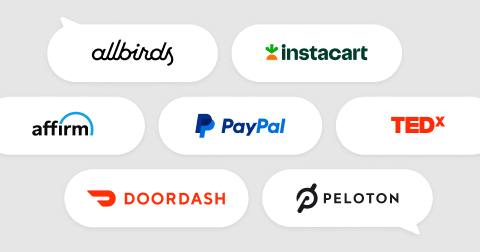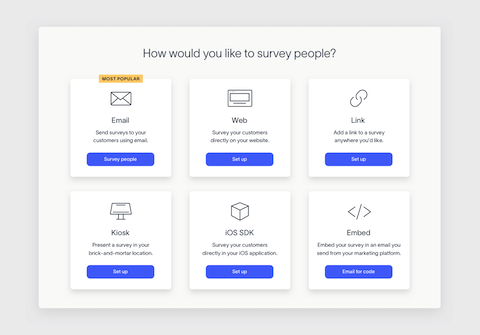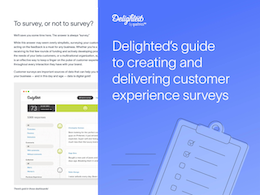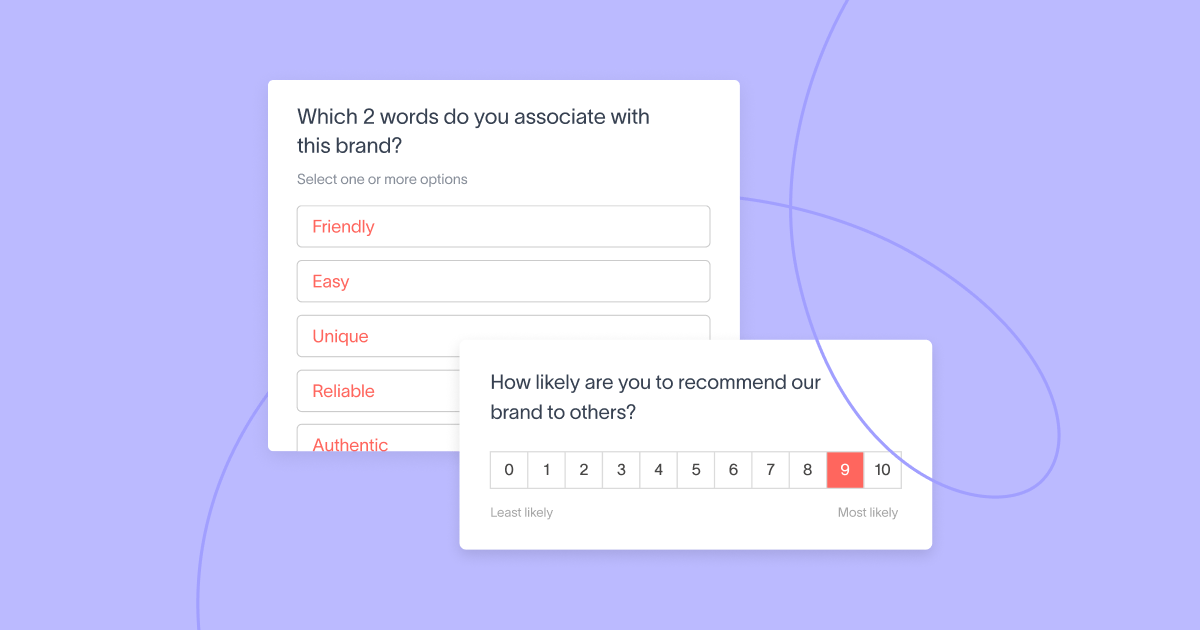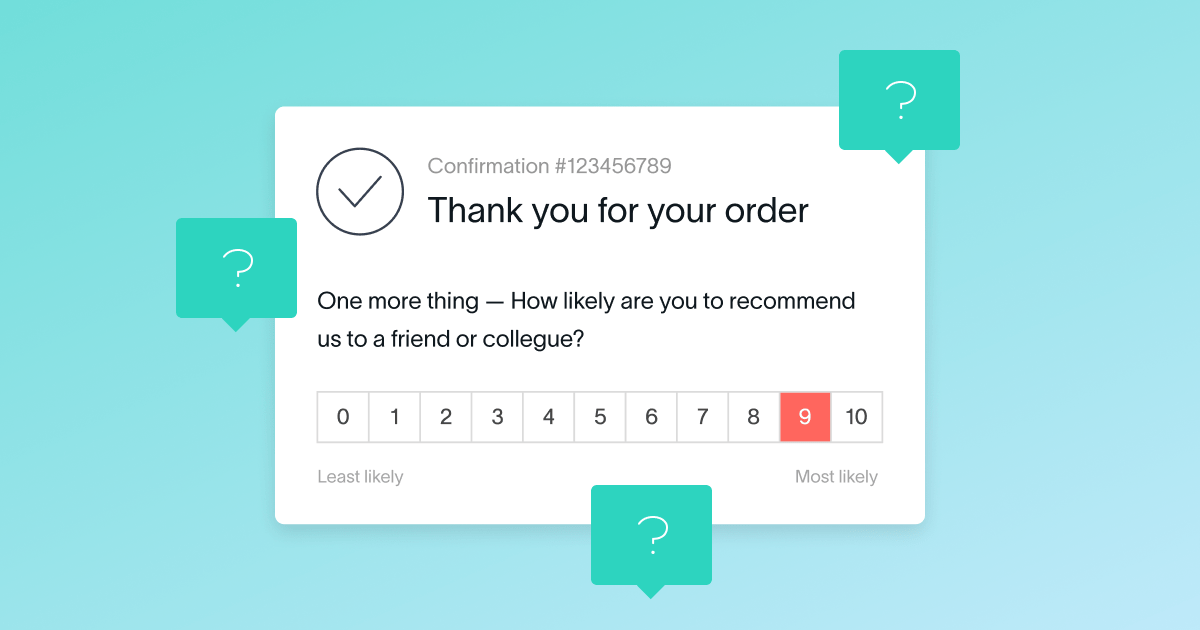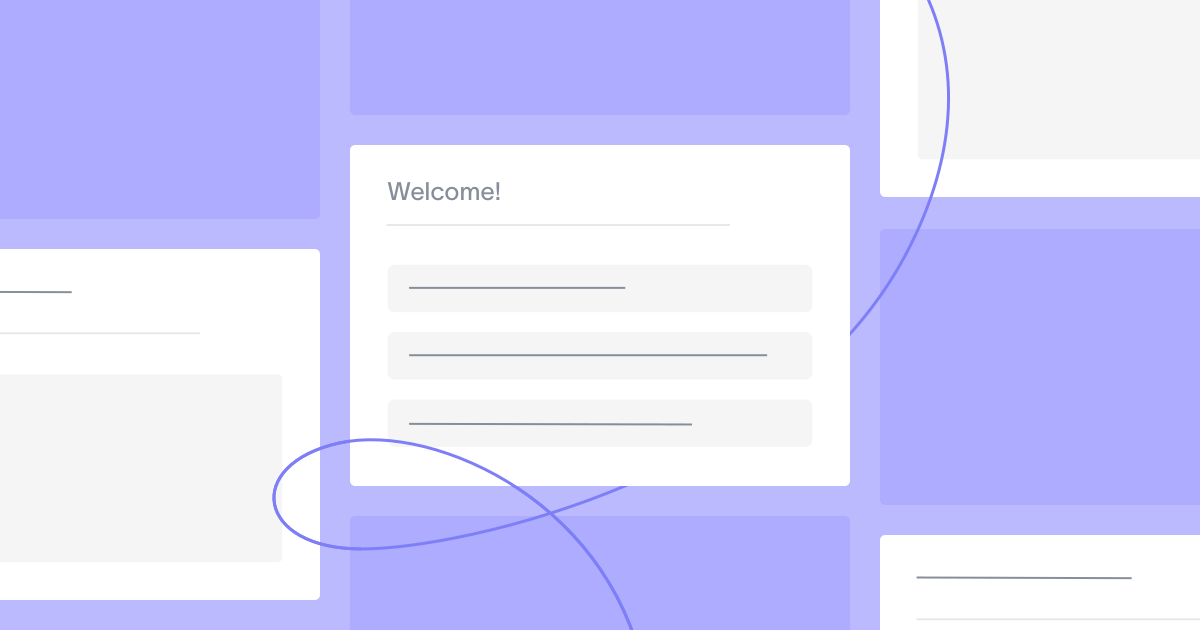Putting on a successful event is no easy feat: a lot goes into creating a positive event experience for attendees, from finding compelling speakers to inviting the right sponsors. One way to measure attendee satisfaction is by surveying them after the event with the right post-event survey questions.
Without evidence of what worked and what didn’t at your event, it’s much more difficult to plan future events that your stakeholders want to attend. Even negative feedback can alert you to what needs to change in order to make your events more successful. Keep reading to learn how to effectively capture the attendee experience with post-event surveys.
In this post, we’ll cover:
- What is a post-event survey?
- Why send post-event surveys?
- Types of post-event survey questions
- How to conduct a post-event survey
- 35 post-event survey questions
- Pre-event survey questions: what to ask and why
What is a post-event survey?
A post-event survey is a questionnaire intended to collect valuable feedback from attendees following an event. By using a range of question types, post-event surveys extract both positive and negative sentiments that can be used to improve events in the future.
Typically, post-event surveys ask about the event’s location, speakers, presentations, catering options, and more. Asking questions about every attendee touchpoint can help you pinpoint what’s working and what’s not in your event planning, marketing, and management processes.
Why send post-event surveys?
There are a number of advantages of sending post-event surveys:
1. Build trust with your attendees
Surveys allow event attendees to use their voices and share their opinions of your event. Giving them the opportunity to share their feedback builds trust – it demonstrates you care about their experiences, and that you want to improve your next event based on their input.
2. Use data to improve and forecast future events
Once you’ve collected attendee feedback by asking post-event survey questions, that data can inform decisions for your next event. For example, if attendees prefer more food options accommodating different dietary restrictions, that’s crucial feedback you wouldn’t have without post-event surveys.
For a more quantitative metric, Net Promoter Score (NPS) surveys measure how likely attendees are to recommend your event to others on a scale of 0 (very unlikely) to 10 (very likely). The accumulated score across all respondents translates to a holistic NPS score, which you can use to measure attendee loyalty and interest.
3. Attract new sponsors
Thanks to your projected growth numbers and positive attendee feedback scores, you have tangible results you can use to attract new sponsors for your event. Providing potential sponsors with projections of attendee numbers and engagement levels can give them the confidence they need in the expected return on their investment.
Types of post-event survey questions
To reap the benefits of post-event surveys, it’s important to first get to know the types of survey questions you can ask attendees.
Close-ended questions
Close-ended questions are survey questions that include predetermined answers for respondents to choose from. They can be answered with a simple one-word answer or via a set of multiple choice answers.
These types of questions are preferable for post-event surveys because they allow you to gather quantitative data that can then be analyzed and tracked over time (e.g., year-over-year for an annual event).
Dichotomous, rating scale, Likert scale, and multiple choice questions are types of close-ended questions.
Dichotomous questions
Short and to the point, dichotomous questions are excellent post-event survey questions. They can only be answered in one of two ways, such as yes/no or thumbs up/thumbs down, and allow for quick and effortless analysis.
Rating scale and Likert scale questions
Rating scale questions ask respondents to share their input by choosing a number on a scale. A Likert scale, a type of rating scale, includes answer options that typically range from strongly agree to strongly disagree on a 5 or 7-point scale. Using Likert and rating scale questions can help you quickly determine how people feel about your event.
Multiple choice questions
Multiple choice questions provide event attendees with several answer options. These predetermined answers make it easier for the attendee to respond; they also make it easier for you to collect and analyze the data.
With multiple choice questions, you gather extra information to help you make decisions about upcoming events, understand where you can improve the attendee experience, or decide where to advertise to reach your audience.
Open-ended questions
Open-ended questions are survey questions that allow event attendees to respond in their own words.
You can use open-ended questions in post-event surveys to gather qualitative data about the event. That is, you won’t necessarily be able to tally statistics, but you will likely uncover insights or recurring sentiment trends that you might not have been aware of.
This type of survey question is a great follow-up to the Likert scale question to dig deeper into why attendees chose a certain answer.
Demographic survey questions
Demographic survey questions typically ask about location, age, income, gender, race, family information, and personal habits. Including demographic survey questions at the end of your post-event surveys will help you understand who your attendees are and where they come from.
Demographic information can not only help you to better market and pitch your events, but also target specific audience groups for attracting new attendees and supporting future event growth.
How to conduct a post-event survey
Now that we’ve covered the types of questions you can ask, let’s discuss some best practices for conducting post-event surveys.
1. Gather attendees’ contact information
With each attendee who registers for your event, make sure to capture their email address or phone number so that they can receive your post-event survey. You will also need to determine their preferred method of contact to increase the likelihood of attendees responding to your survey.
2. Prepare your post-event survey ahead of time
When possible, prepare your survey ahead of your event so that you can send it as soon as the event’s over – or at least within one business day of the event. That way, the details are fresh in your attendees’ minds, and they can provide you with constructive feedback to make your next event even better.
3. Think through your survey questions and question types
After collecting the attendees’ contact information, decide what questions you want to ask them in your post-event survey. Here’s what you’ll want to think through:
- What to ask: Include questions about different touchpoints, like the check-in experience, event location, presentation topics, and food options.
- How to ask: Ask close-ended and open-ended questions to tally quantitative data into metrics you can compare and track over time, as well as qualitative data to dig deeper into attendee sentiment. Also, to receive high response rates, consider all survey design best practices to ensure your survey is as optimized as possible.
- Who to ask: Be sure to also include demographic survey questions as they will reveal who your event attendees are now – and who you might want to target in the future.
Not sure which questions to ask? We’ve included a comprehensive list of post and pre-event survey questions below. Or, jump directly into our pre-event and post-event survey templates!
3. Distribute the survey to attendees
Once you have your post-event survey questions selected, decide which survey distribution method is best suited for attendees. Depending on your audience, the best way to reach them may be online survey options like web, link, or email surveys; or they might be more inclined to respond via physical options like a kiosk or QR code survey.
4. Send reminders
Send a follow-up message a few days or a week later to remind people to share their feedback. Encourage responses by informing people that their feedback will help shape and improve future events. Letting people know their opinions matter will help motivate them to respond. You could also offer an incentive to improve your response rate, such as a free or discounted ticket for your next event.
35 post-event survey questions
Take a look at the following post-event survey questions, which you can use in your survey or fine-tune to your specific goal.
Close-ended question examples
Dichotomous question examples
- Are you satisfied with the event’s venue?
- Have you attended [this event] before?
- Would you recommend our events to a friend or colleague?
- Will you attend this event next year?
- Did this event meet your expectations?
Rating/Likert scale question examples
- How would you rate the event overall?
- How would you rate the speakers?
- How would you rate the venue?
- How would you rate the staff?
- How likely are you to attend another event?
- How satisfied are you with the variety of topics presented at the conference?
- Today’s sessions included useful and insightful information.
- This conference features unique sessions I wouldn’t find at other events.
- How satisfied are you with the food and drink options at today’s event?
- I found the check-in process at this event to be seamless.
Multiple choice question examples
- How did you hear about the event?
- How many conferences do you attend per year?
- Which aspect of the event could we improve to make your experience better? Check all that apply.
- What part of today’s event was the most impactful?
- How much more would you spend on a ticket to this type of event next year?
Open-ended question examples
- Tell us more about why you selected that score:
- What was your favorite part of the conference?
- What would you want to see improved for next year?
- Tell us what differentiates this conference from others you’ve attended.
- Anything else you’d like to share about the event?
Demographic question examples
- What is your gender?
- What is your age?
- What is your ethnic background?
- Where are you located?
- What is the highest level of education you have achieved?
- What is your marital status?
- What is your employment status?
- What is your annual household income?
- How many dependents live in your home?
- What is the primary language spoken in your home?
Pre-event survey questions: What to ask and why
Up until now, we’ve focused on post-event surveys. But there’s another opportunity for you to gather feedback from attendees: before your event.
A pre-event survey can help you better understand why people are attending your event in the first place, how easy it was to find the information they needed to register/attend, as well as how to make your event as inclusive and accessible as possible for all attendees.
Pre-event survey question examples
- What is your name?
- What is your email address?
- How did you hear about us?
- What days do you plan on attending?
- I could easily find the event information I needed.
- Have you attended this event before?
- If you have any dietary restrictions, please list those below:
- If you have accessibility requirements, please list those below:
- What are you hoping to get out of this event?
Whether you send pre-event or post-event surveys, Delighted’s free online survey maker has templates for both. Start surveying in minutes today.
